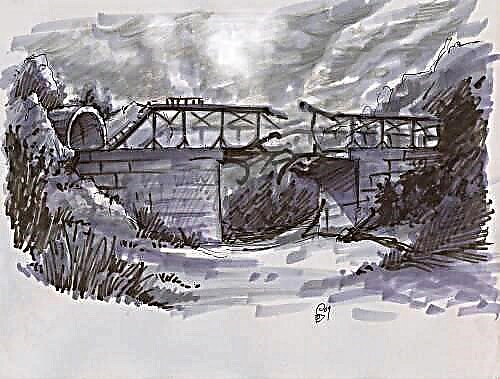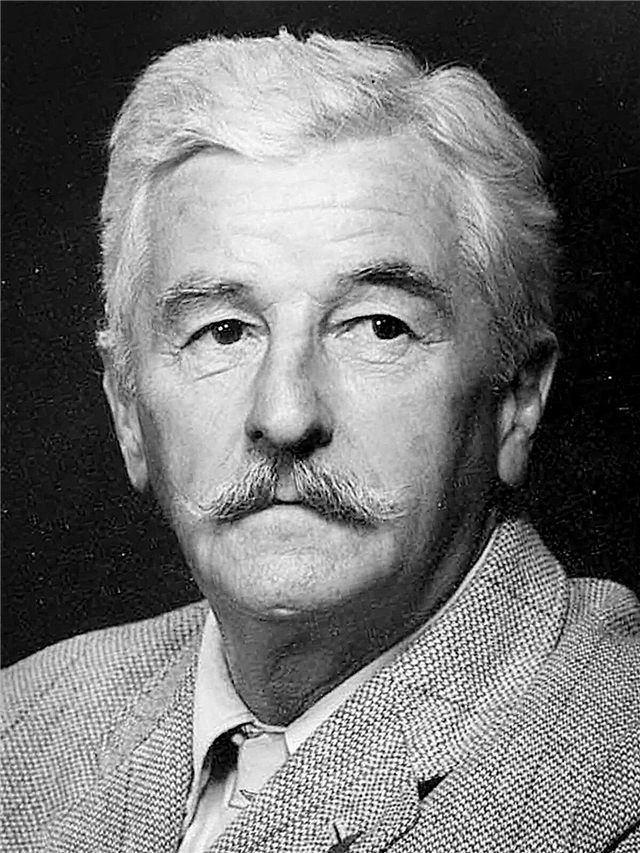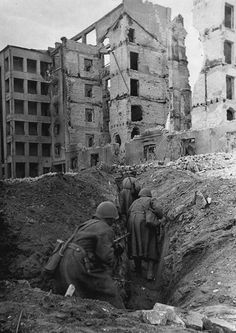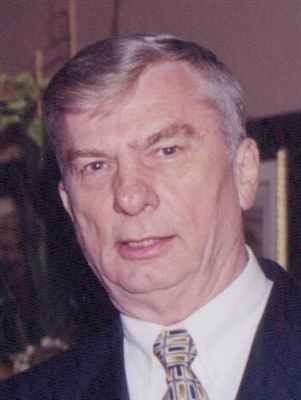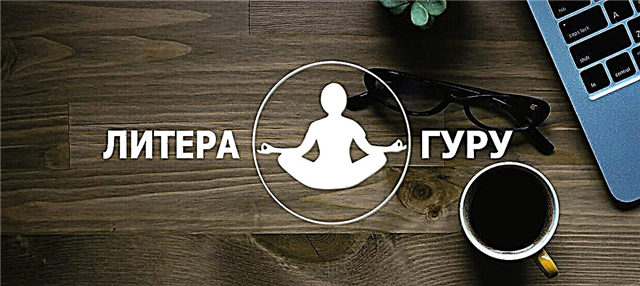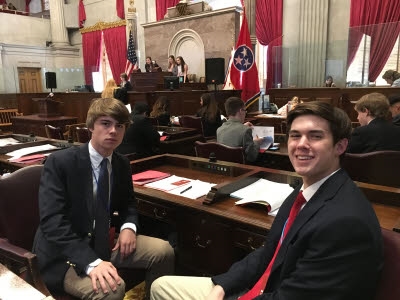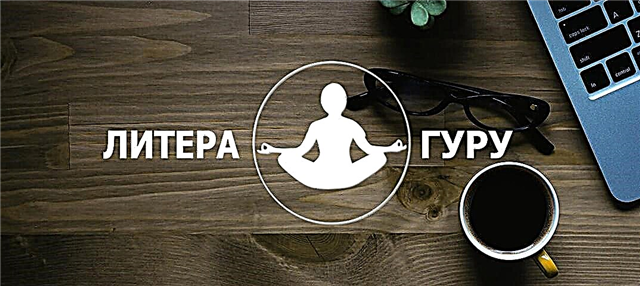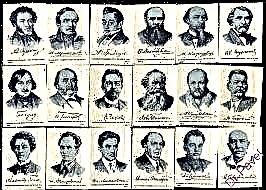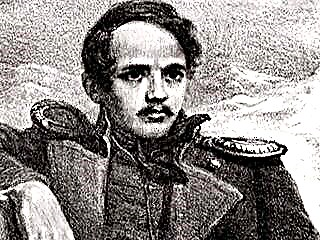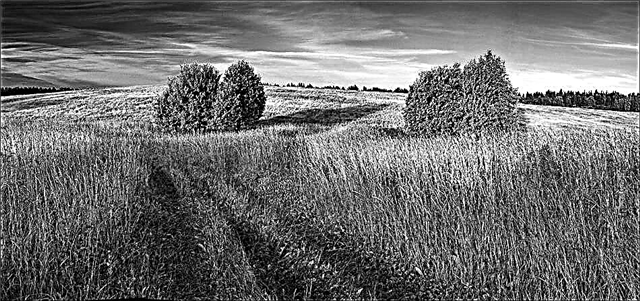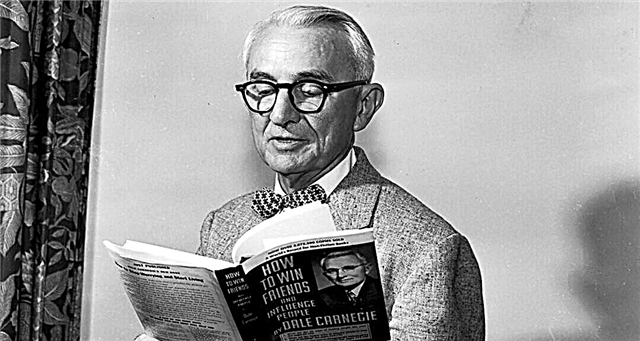At the end of a warm October day, when “the crop was already grown, and nature was filled with calm calm weather”, the forty-year-old journalist of one of the regional newspapers of the Grodno region, having met a friend on the street, found out that a young teacher (36 years old) died two days ago, Miklashevich from the village of Seltso. Heart pinched from the consciousness of irreparable guilt. Clinging to the last opportunity to justify himself, he decided to go to Seltso immediately. A passing truck turned out to be very helpful. Having settled down on roofing rolls in a body, the journalist plunged into memories.
Two years ago, at a teacher’s conference, Miklashevich told a journalist that he had long wanted to address him with one confusing matter. Everyone knew that Miklashevich was somehow connected with the partisans during the occupation, and the Nazis shot his five classmates. With the cares of Miklashevich, a monument was erected in their honor. The teacher was engaged in the history of guerrilla warfare in the Grodno region. And now he needed help in some complicated business. The journalist promised to come and help. But he put off the trip all the time. Before Selts it was about twenty kilometers, and in winter he waited “until the frosts subside or the blizzard subsides, in the spring - until it dries and warms; in the summer, when it was dry and warm, all thoughts were occupied by holidays and troubles for the sake of a month in the cramped, hot south. ” And he was late.
Before his mind's eye appeared a very thin, sharp-pointed figure of Miklashevich, with shoulder blades protruding under his jacket and an almost boyish neck. He had a wilted face in thick wrinkles. It seemed like an old man beaten by life. But the look is calm and clear.
Shaking on bumps, the journalist scolded “vanity for the ghostly insatiable well-being”, because of which “it is more important and life is significant when it is filled with care for near or distant people who need your help”.
Behind the bend an obelisk appeared, standing not far from the bus stop. Jumping to the ground, the journalist headed for a long alley of ancient, wide-barreled elms, at the end of which the school building was whitewashed. A livestock specialist came up with a box of Moskovskaya vodka and suggested that they commemorate the commemoration in the teacher’s house, behind the school. For the journalist, they found a free place next to the elderly, judging by the order bar, a veteran. At this time, several bottles were put on the table, and those present were noticeably enlivened. The manager took the floor district Ksendzov.
A young man with an overwhelming confidence on his face raised his glass and began to say what kind of a good communist Miklashevich was, an active social activist. And now that the wounds of war have been healed, and the Soviet people have achieved outstanding success in all sectors of the economy, culture, science and education ...
- What does success have to do with it! - Veteran neighbor slammed his fist on the table. - We buried a man! Here we live! We sit, drink in Selce, and no one remembers Frost, which everyone here should know.
Something happened that the journalist did not understand, but that others understood. He quietly asked the neighbor on the right who this noisy veteran was. It turned out that the former local teacher Timofei Titovich Tkachuk, who now lives in the city.
Tkachuk headed for the exit. The journalist moved after him. There was no point in staying. Having approached the bus stop, Tkachuk sat on the foliage, lowering his legs into a dry ditch, and the journalist, without losing sight of the road, wandered to the obelisk. It was a squat — slightly taller than human height — concrete structure with a picket fence. The obelisk looked poor, but was well maintained. The journalist was surprised to see a new name on a black metal plate - AI Moroz, displayed over the rest of the white oil paint.
Tkachuk stepped onto the asphalt and suggested that the journalist ride with him on the way. They walked in silence. In order to somehow defuse the situation, the journalist asked Tkachuk if he had known Miklashevich for a long time. It turned out a long time ago. And he considers him a real person and a teacher with a capital letter. Guys followed him in a herd. And when he was a kid, he himself went in the herd for Frost. The journalist never heard of Frost, and Timofey Titovich began his story.
In November 1939, when Western Belarus reunited with the Byelorussian SSR, the People's Commissariat of Education sent Timofei Tkachuk, who had completed two-year teacher courses, to organize schools and collective farms in Western Belarus. Young Tkachuk, as the head of the district, wound around the district, he himself worked in schools. The owner of the estate Seltso pan Gabrus went to the Romanians, and in the estate Moroz opened a school for four classes. Mrs. Podgayskaya, an elderly woman who lived here under Gabrus, worked with Moroz. She almost did not speak Russian, understood Belarusian a little. At first, Mrs. Podgayskaya resisted the new methods of pedagogical education that Moroz introduced, along with agitation, not to go to church. Even complained to Tkachuk. Tkachuk, taking a bicycle - the local rovar here - went to Seltso to check what was happening at school.
The schoolyard was full of children. Work was in full swing there - firewood was being prepared. A huge tree fell over the storm, and now they sawed it. There was not enough wood then, complaints from schools about fuel came, but there was no transport in the area. But here they realized and did not wait to be provided with fuel. One guy, sawing a thick trunk in tandem with a tall teenager, very lame, went up to Tkachuk. One of his legs was turned to the side and did not bend. And so nothing guy - broad-shouldered, face open, bold look. He introduced himself as Frost Ales Ivanovich.
Ales came from the Mogilev region. After graduating from a pedagogical school, he taught for five years. Such a leg since birth. Frost admitted that with the drug programs in the school, not everything is really in order, academic performance is not brilliant. The children studied in a Polish school, many do not cope well with Belarusian grammar. But the main thing is that they comprehend national and universal culture. He wanted to make of children not obedient crampons, but first of all people. And this is not very developed in the methods. This can only be achieved by personal example of a teacher. Frost taught the children to understand moral postulates with their souls. He instilled both literacy and kindness. Somewhere around the schoolchildren picked up a three-legged little dog and a blind cat, and Frost allowed them to settle in school. Then a starling appeared, in the fall behind the pack, so they made a cage for him.
One late January evening of 1941, passing by, Tkachuk decided to warm up at school. The door was opened by a slender boy of about ten years old. He said that Ales Ivanovich went to accompany two younger twin girls through the forest. About three hours later, frosty frost returned. This is a story with girls. Colds have come, mother does not let me go to school: the shoes are bad and go far. Then Frost bought them a pair of shoes. Usually the girls were accompanied by Kolya Borodich, the one who once sawed a deck with a teacher. Today, he did not come to school, and so the teacher had a chance to go to the escort. And about his lodger he said that the boy will stay while at school, at home, they say, something is wrong, his father beats hard. That guy was Pavlik Miklashevich.
Two weeks later, the district prosecutor Sivak ordered Tkachuk to go to Seltso and take away from Moroz the son of citizen Miklashevich. The prosecutor did not want to listen to the objection: the law! Frost listened silently, called Paul. He refused to go home. Frost explains so unconvincingly that, according to the law, a son must live with his father and, in this case, with his stepmother. The boy cried, and Miklashevich Sr. led him to the highway. And now everyone sees how the father removes the belt from the casing and begins to beat the boy. The policeman is silent, children are reproachfully looking at adults. Frost, limping, ran across the yard. “Wait,” shouts, “stop beating!” He pulled Pavlov’s hand from his father’s: “You won’t get it from me!” We nearly got into a fight, managed to separate them. The whole case was transferred to the executive committee, a commission was appointed, and father filed a lawsuit. But Frost nevertheless achieved his goal: the commission identified the guy in the orphanage. With the implementation of this Solomon decision, Frost was in no hurry.
The war turned the whole way of life. An order came from Grodno: to organize a fighter squad to catch German saboteurs and paratroopers. Tkachuk rushed to collect teachers, traveled to six schools, and by lunch was already in the district committee. But the leadership drove away with all their belongings to Minsk. The Germans were advancing, and the retreating Soviet troops were nowhere to be seen.
On the third day of the war, on Wednesday, the Germans were already in Selce. Tkachuk and even two teachers barely managed to hide in the forest. They expected that in two weeks Germans would be driven away. If someone said that the war would drag on for four years, they would consider him a provocateur. And then it turned out that many people are not only not inclined to resist the invaders, but also willingly go to serve the Germans.
The teachers met a group of encircled groups led by the Kuban Cossack Seleznev, a cavalry major. They dug in the Wolf Pit and began to prepare for winter. There were almost no weapons. Attached to the detachment and the prosecutor Sivak. Here he was already ordinary. At the council, they decided that it was necessary to establish relations with villages, with reliable people, "to feel on the hamlets of the encircled people who ran away from the units and were attached to the young women." The major sent all the locals to whom.
Tkachuk and Sivak decided to go to Seltso, where the prosecutor had a familiar activist. But they learned that the activist Lovechen walks with a white bandage on his sleeve - he became a policeman. And teacher Moroz continues to work at school - the Germans gave permission. True, it’s not in Gabrusev’s estate, now there is a police station there, but in one of the huts. Tkachuk was astounded. He did not expect this from Ales. And then the prosecutor is itching that at one time, they say, it was necessary to repress this Frost - not our man.
It got dark. We agreed that Tkachuk would go in alone, and the prosecutor would wait in the middle of the bushes. Met with Frost silently. Ales grinned sourly and began to say that we would not teach, the Germans would fool us. And he didn’t humanize these guys for two years, so that they would be humanized now. They called the prosecutor. We talked frankly about everything. It became clear that Frost is smarter than others. He took wider with his mind. Even the prosecutor understood this. They decided that Moroz would remain in the village and would inform the partisans of the Nazis' intentions.
The teacher was an indispensable assistant. In addition, the villagers respected him. Frost slowly listened to the radio. He will write down the reports of the Sovinformburo, for which the greatest demand was, will be distributed among the population and will be transferred to the detachment. Twice a week, the boys put notes in a small house, which was hanging at a forest gatehouse on a pine tree, and at night they were taken by partisans. We sat in their holes in December - everything was covered with snow, cold, with food tight, and only joy that this Morozov post. Especially when the Germans were defeated near Moscow.
At first, everything went well with Frost. The Germans and police did not molest, watched from afar. The only thing that hung on his conscience was the fate of those two twins. In early June, forty-first, Frost persuaded their mother, the cautious village woman, to send her daughters to a pioneer camp. Only they left, and then the war. So the girls disappeared.
One of the two local policemen, a former acquaintance of the lawyer Lavchenya, sometimes helped villagers and partisans, warning about the raids. In the winter of the forty-third, the Germans shot him. But the second turned out to be the last reptile. In the villages, his name was Cain. He brought many troubles to people. Before the war, he lived with his father on a farm, was young, unmarried - a guy like a guy. But the Germans came - and the man was reborn. Probably, in some conditions one part of the character is revealed, and in others - another. Before the war, something vile was sitting in this Cain, and maybe it would not have crawled out. And then it flooded. Served with zeal the Germans. He shot, raped, robbed. He mocked the Jews. And Cain suspected something of Frost. Once the police came to school. Classes were just going there - there were about twenty children in one room at two long tables. Cain bursts in, with him two more and a German is an officer from the commandant’s office. Shocked student bags, checked books. They didn’t find anything. Only the teacher was interrogated. Then the guys, led by Borodich, were up to something. Hidden even from the Frost. One day, however, Borodich, as if by the way, hinted that it would be nice to hit Cain. There is a possibility. Frost forbade, but Borodich did not think to part with these thoughts.
Pavel Miklashevich was then in his fifteenth year. Kolya Borodich was the oldest, he was eighteen. The Kozhan brothers are Timka and Ostap, the namesakes Smurny Nikolay and Smurny Andrey, only six. The youngest, Smolny Nikolai, was about thirteen. This company has always kept together. They had more than enough stupidity and courage, but dexterity and intelligence were scarce. They wondered for a long time, and, finally, developed a plan.
Cain often came to his father's farm, across the field from Selts. There he drank and amused himself with the girls. One rarely came, more with other police officers, and even with the German authorities. In the first winter they behaved impudently, were not afraid of anything. Everything happened unexpectedly. Spring had already arrived, and snow had fallen from the fields. By that time, Tkachuk became the commissar of the detachment. Early in the morning the sentry woke him. He said that they detained some lame one. Frost was brought into the dugout. He sat down on a bunk and spoke in such a voice, as if he had buried his mother: "The Khlopts were taken away."
It turned out that Borodich still achieved his goal: the guys lay in wait for Cain. A few days ago he rolled in a German car with sergeant major, a soldier and two policemen to his father. They spent the night there. Before that, we stopped in Seltso, took pigs, grabbed a dozen chickens from the huts. On the road, near the intersection with the highway, a small bridge was thrown over the ravines. Two meters to the water, albeit one knee-deep. A steep descent led to the bridge, and then the ascent, so the car or the supply is forced to take acceleration, otherwise you will not get to the ascent. The boys took this into account. As it got dark, all six with axes and saws - to this bridge. They sawed up the posts by half so that a person or a horse could cross, but not a car. Two - Borodich and Smuriy Nikolai stayed to watch, and the rest were sent home.
But that day, Cain was late, and the car appeared on the road when it was already completely dawn. The car slowly crawled along the bad road and could not take the necessary acceleration. On the bridge, the driver began to switch speed, and then one cross-beam broke. The car banked and flew sideways under the bridge. As it turned out later, the riders and pigs with hens just went into the water and immediately jumped out safely. Unlucky German, landing under the side. He was crushed to death.
The lads rushed into the village, but one of the policemen noticed a figure of a child flickering in the bushes. After an hour, everyone in the village already knew what had happened at the ravine. Frost immediately rushed to school, sent for Borodich, but he was not at home. Miklashevich could not stand it and told the teacher about everything. Frost did not know what to think of. And at midnight he hears a knock on the door. On the threshold stood a policeman, that same Lavchenya. He said that the boys had been captured and were already following Frost.
Frost left in the squad. He walked as if into the water. A couple more days passed. Suddenly, Ulyana came running into the forest, connected with the forest cordon. She was allowed to come only as a last resort. The Germans demanded to give Moroz, otherwise they threatened to hang the guys. At night, their mothers came running to Ulyana, asking Christ-God: "Help Ulyanochka." She answered: “How do I know where that Frost is?” And they: “Go, let him save the little ones. He’s smart, he’s their teacher. ”
Six more stones per poor teacher’s soul! It was clear that they would not let the guys go, and they would kill him. We got out of the dugout, and here is Frost. He stands at the entrance, holds a rifle, but there is no face on the very face. I heard everything and asks to go. Seleznev and Tkachuk got angry. They shouted that one had to be an idiot to believe the Germans as if they would let the lads go. Going is reckless suicide. And Frost calmly replies: "That's right." And then Seleznev said: "In an hour we will continue the conversation." And then they discovered that Frost is nowhere to be found. They sent him to Seltso Gusak, whose brother-in-law lived there to track how it would be next. It was from this Gusak, and then from Pavel Miklashevich, that it became known how events developed.
The guys are sitting in the barn, the Germans interrogate them and beat them. And they are waiting for Frost. Mothers climb into the courtyard to the headman, ask, humiliate themselves, and the police drive them. At first, the guys held on firmly: we know nothing, did nothing. They began to torture them, and Borodich could not endure the first, took everything upon himself, and thought that the others would be released. And at this very time is Frost. Early in the morning, when the village was still asleep, he stepped into the courtyard to the headman. The Germans twisted their hands to Frost, tore off the casing. As they brought to the headman's hut, old Bohan seized the moment and said quietly: "It wasn’t necessary, teacher."
Now the whole "gang" was assembled. The lads still lost heart in the barn when they heard the voice of Ales Ivanovich behind the doors. Until the very end, none of them thought that the teacher came voluntarily. They thought they grabbed him somewhere. And he did not tell them anything about himself. Only encouraged. In the evening, all seven were taken out onto the street, everyone somehow stood on their feet, except Borodich. The elder twin brother Kozhanov, Ivan, made his way forward and said to some German: “How so? You said that when frost comes, let the lads go. ” A German gives him parabellum in the mouth, and Ivan kicks him in the stomach. Ivan was shot dead.
They led along the same road, across the bridge. Ahead is Frost with Pavlik, followed by the Kozhan twins, then the Smurny namesakes. Behind the two police dragged Borodich. There were about seven policemen and four Germans. They did not let anyone talk. Everyone's hands were tied behind. And around - familiar from childhood places. Miklashevich recalled that such longing had attacked him, even shouting. It is understandable. Fourteen to sixteen years old lads. What did they see in this life?
We approached the bridge. Frost whispers to Pavlik: "Like a scream, rush into the bushes." It seemed to Pavlik that Frost knew something. And the forest is already nearby. The road is narrow, two policemen go in front, two on either side. Suddenly, Frost shouted loudly: “Here it is, here - look!” And he looks to the left of the road, shows with his shoulder and head, as if he saw someone there. And so naturally it happened to him that even Pavlik looked there. But he only looked once, then jumped in the opposite direction and found himself in the thicket. Seconds later, someone hit a rifle, then again. The police dragged Paul. The shirt on his chest was saturated with blood, his head sagged. Frost was beaten so that it did not rise. For confidence, Cain hit Pavlik in the head with a butt and shoved him into a ditch of water.
There he was picked up at night. And those six were brought to the place and held for another five days. On Sunday, just on the first day of Easter, they hung. On the telephone pole at the post office, a crossbar was reinforced - such a thick beam, it looked like a cross. First, Frost and Borodich, then the rest, then on the one, then on the other. For balance. And this rocker stood for several days. Buried in a quarry behind a brick factory. Then, when the war ended, they buried closer to Selts.
When the Germans were knocked out in the 44th, some papers remained in Grodno: police documents, the Gestapo. And they found one paper regarding Ales Ivanovich Moroz. An ordinary sheet of a notebook in a cage, written in Belarusian, is a report of the senior police officer Gagun Fedor, the same Cain, to his superiors. Like, on April 42, a team of police officers under his command captured the leader of the local partisan gang, Ales Moroz. This lie was needed by Cain, and by the Germans. They took the guys, and three days later they caught the leader of the gang - there was something to report about. In addition, when a lot of dead and wounded were gathered in the detachment, they demanded data on losses from the brigade. They remembered Frost. He spent only two days in the partisans. Seleznev and says: “We will write that he was captured. Let them understand. ” So our document was added to German. And to refute these two pieces of paper was almost impossible. Thanks to Miklashevich. He nevertheless proved the truth.
But he never gained health. The chest was shot through, and even so much time lay in melt water. Tuberculosis started. Almost every year in hospitals was treated. Lately, it seemed he was feeling quite well. But while he was treating the lungs, his heart passed. “Our Pavel Ivanovich’s war ended yet,” Tkachuk finished.
A car slipped by, but suddenly slowed down and stopped. The head of the district Ksendzov agreed to give a ride. The car started. The manager turned halfway and continued the argument that had begun in Selce. Ksentzov said in a mentor-like tone that there were heroes no match for this Frost, who had not even killed a single German. And his act is reckless - he did not save anyone. And Miklashevich accidentally survived. And he does not see any feat in this. Tkachuk, no longer restraining himself, replied that the head was apparently mentally short-sighted! And the rest, like him, are blind and deaf, regardless of posts and ranks. Ksendzov is only 38 years old, and he knows the war from the newspapers and from the movies. And Tkachuk did it with his own hands. And Frost took part. Miklashevich visited her claws, but never escaped. It ended up that Tkachuk called Ksendzov a "brainless fool" and demanded to stop the car. The driver began to slow down. The journalist tried to stop him. Tkachuk threw a few more phrases that people like Ksendzov are dangerous because everything is clear to them ahead of time. But you cannot live like that. Life is millions of situations, millions of characters and destinies. They can not be squeezed into two or three common schemes, so that less trouble. Frost did more than if he had killed a hundred Germans. He put his life on the block voluntarily. There is neither Moroz, nor Miklashevich. But Timofey Tkachuk is still alive! And he will not be silent anymore. He will tell everyone about the feat of Frost.
Not meeting with objections, Tkachuk was silent. Ksendzov, too, was silent, staring at the road. Headlights brightly cut the darkness. On the sides flickered white pillars of light, road signs, willows with whitewashed trunks ...
We drove up to the city.

